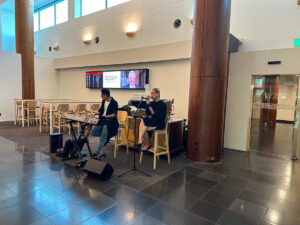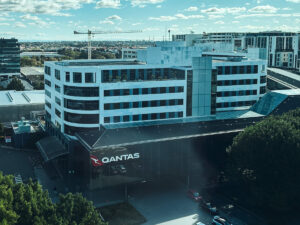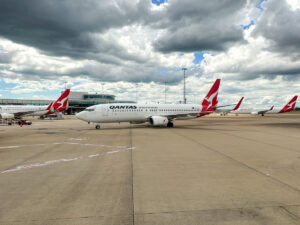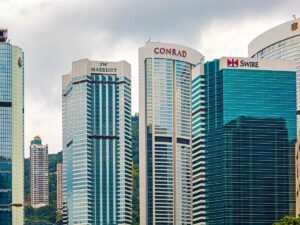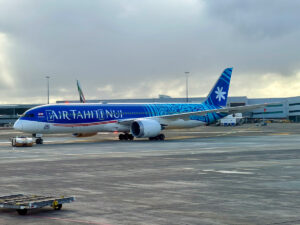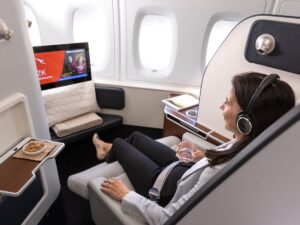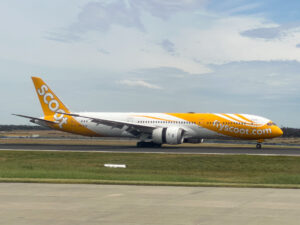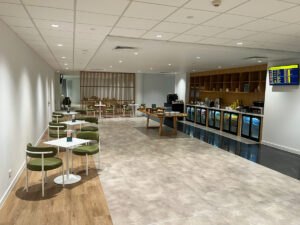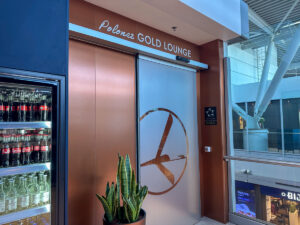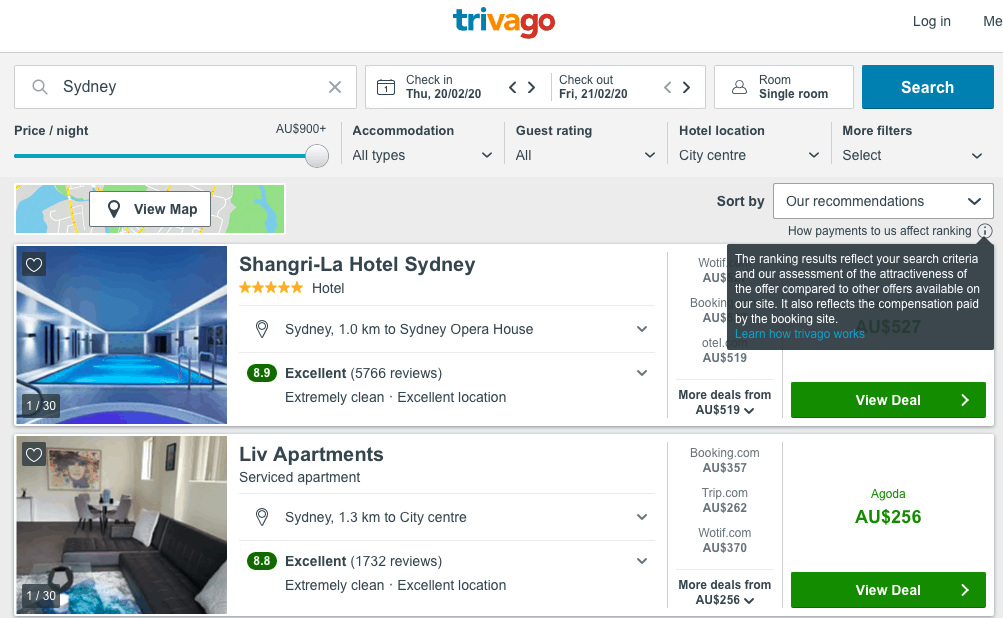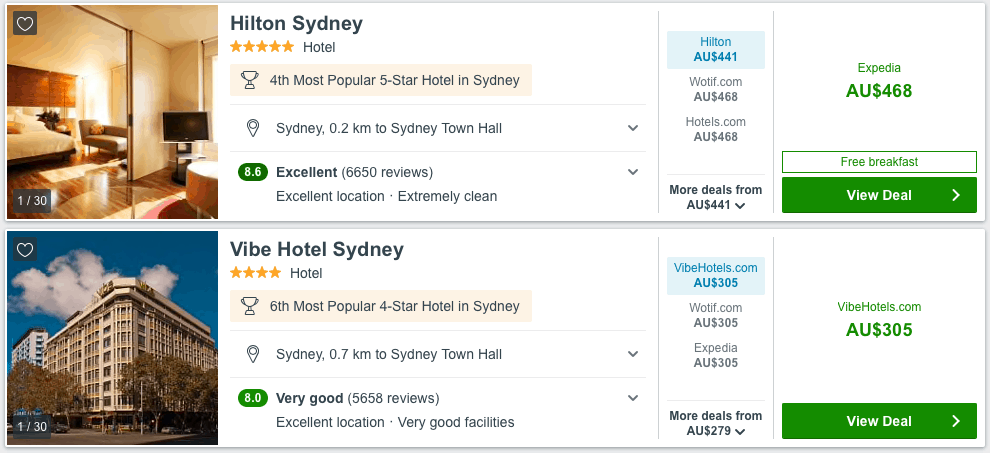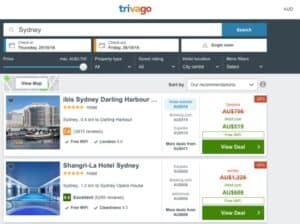
An Australian Federal Court judge has ruled that hotel booking website Trivago misled customers into believing they were getting the best price on hotel rooms.
In 2018, the Australian Competition & Consumer Commission (ACCC) alleged that Trivago, which is owned by Expedia, created a false impression that customers would be shown the lowest price when searching through Trivago. The website is an aggregator that compares the cost of hotel rooms on a variety of booking platforms.
The complaint also alleged that the strike-through price comparisons were misleading because they compared the price of a standard room with a more expensive room type.
“Based on Trivago’s highlighted price display on its website, we allege that consumers may have formed the incorrect impression that Trivago’s highlighted deals were the best price they could get at a particular hotel, when that was not the case. Trivago based its rankings on the highest cost per click it would receive from its advertisers,” ACCC Chair Rod Sims said.
Federal Court Justice Mark Moshinsky agreed, saying that Trivago “did not provide an impartial, objective and transparent price comparison service” despite running television advertisements promising to help customers find their ideal hotel at the best price. Those advertisements aired almost 400,000 times between December 2013 and April 2018.
Trivago will return to court in Australia for case management at a later date.
Trivago has since changed the language used in its advertising. It has also made some changes to its website, such the addition of a notice at the top of each search page about how commission payments can affect the search results:
At present, Trivago openly admits on its website that the highest price displayed for a given hotel (which may be shown in red beside the highlighted offer in green) does not take into account the type of room, hotel amenities, included meals or cancellation policies. This means that the website could be comparing a standard, non-refundable room without breakfast to a luxury suite which includes breakfast and free cancellation.
Trivago’s main source of revenue – as with most comparison websites – is commission received when a customer clicks on the link to the advertised hotel booking website.
It is still the case that the highlighted deals on Trivago are not necessarily the lowest available price for that hotel. Here’s an example of a search we did today, where lower prices are available under “more deals”:
Join the discussion on the Australian Frequent Flyer forum: Trivago in trouble

